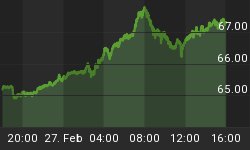
- Desire to avoid repeating mistakes made in 1937.
- Fear of a deflationary spiral.
1937 Keeps Governors Up At Night
Central bankers are students of monetary policy history. In 1937, in the midst of a post Great Depression recovery, the Fed helped push the fragile economy back into recession by raising interest rates too soon. According to Bloomberg, the Fed is concerned about a 1937-like scenario:
The dangers of repeating that mistake are highlighted in a survey of the 22 primary dealers that trade U.S. Treasuries directly with the Fed. The dealers saw a 20 percent chance the Fed, which plans to raise its main interest rate in 2015, would be forced to cut it back to zero within two years, according to the median response to the poll, taken by the New York Fed before September's Federal Open Market Committee meeting. "When I think of the odds of them having to reverse course, they are uncomfortably high because this is not your typical cycle and typical recovery," said Eric Green, head of U.S. rates and economic research at TD Securities USA LLC in New York, a primary dealer. The fact that the New York Fed's poll even raised the question of a return to zero interest rates shows that officials have doubts about tightening policy, said Green, a former New York Fed economist.
Deflation Is Hard To Contain
Assume you were getting ready to buy a house and you noticed that prices had declined in each of the past three months. You might logically decide to sit on your hands and be patient with your cash. The more patient buyers become, the further demand drops, and the faster prices fall, which is what a deflationary spiral looks like. Central bankers would prefer to combat inflation that is too high rather than extremely low inflation that could slip into deflation.
Investment Implications - Weight Of The Evidence
With non-farm payrolls coming Friday morning at 8:30 am EST, the weekly battle between the bulls and bears has a ways to go. However, as noted in last Friday's video, the big picture continues to trend in the bulls' favor. During Thursday's session, the weekly scorecard shows the S&P 500 posting a 10 point gain. If the positive trends can carry into Friday's close, the evidence in hand will call for another incremental add to the growth side of our portfolios. The bulls would like to see the S&P 500 close above 2031. The bears prefer to see a weekly close below 2011.

Since the non-farm payrolls report falls into the "anything can happen" category, we will wake up Friday with a flexible and open mind.
Snail image from Andy Hay















